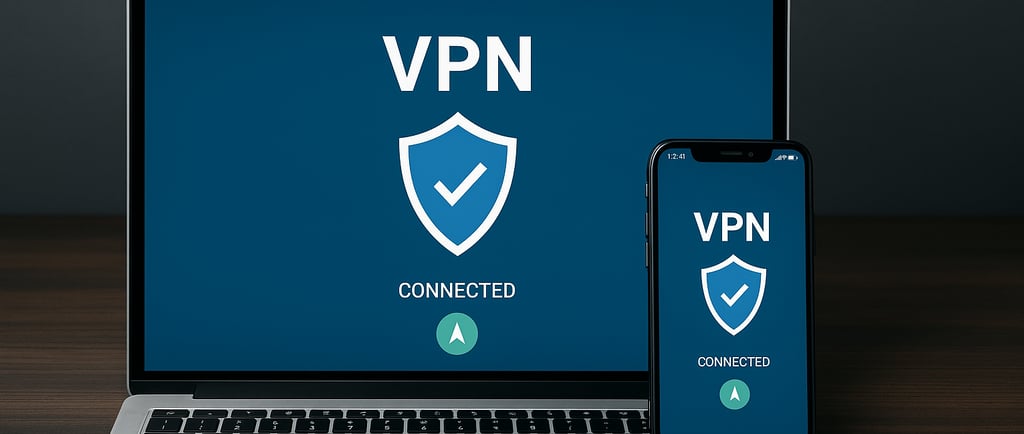Can a VPN Improve Your Internet Speed?
VPN


One of the most common questions people ask about VPNs is whether they make the internet faster. Since VPNs route your traffic through an encrypted tunnel, many assume they slow things down—and sometimes they do. But in certain situations, a VPN can actually improve your internet speed. Let’s break down when a VPN helps, when it doesn’t, and what you can do to get the best performance.
Why VPNs Sometimes Slow Down Your Connection
A VPN adds an extra step to your connection: instead of going directly from your device to the website, your data first travels through the VPN server. This process involves:
Encryption: Scrambling your traffic adds a bit of overhead.
Longer Routes: Connecting to distant servers can increase latency (ping).
Server Load: If too many users share one server, speeds can drop.
With low-quality or free VPNs, this slowdown is noticeable. Premium VPNs, however, use optimized servers and modern protocols (like WireGuard) to minimize the impact.
How a VPN Can Actually Improve Speed
1. Avoiding ISP Throttling
Many Internet Service Providers slow down certain activities, like streaming, torrenting, or gaming, to manage bandwidth. This is called throttling. Because VPNs encrypt your traffic, ISPs can’t tell what you’re doing—so they can’t selectively slow it down. Result: smoother streaming and faster downloads.
2. Better Routing
Sometimes, ISPs route traffic inefficiently, causing delays. A VPN can reroute your connection through faster, less congested paths. In rare cases, this can lead to lower latency than your normal connection.
3. Accessing Unrestricted Bandwidth
Some networks (like hotels, cafés, or schools) limit certain services. With a VPN, your encrypted traffic bypasses these restrictions, giving you normal speeds.
When a VPN Might Hurt Your Speed
Distant Servers: Connecting from the U.S. to a server in Asia will increase ping.
Overloaded Servers: Free VPNs or crowded servers may struggle to handle demand.
Weak Protocols: Older protocols like PPTP and L2TP are less efficient compared to modern ones like WireGuard.
Tips for Getting the Best VPN Speeds
Choose the Right Protocol
WireGuard: Fastest and most efficient.
OpenVPN (UDP): Secure and stable but slightly slower.
IKEv2: Great for mobile users switching networks.
Pick the Nearest Server
The closer the server, the lower the latency.
Avoid Free VPNs
They often cap bandwidth, overload servers, and use weak infrastructure.
Test Multiple Servers
If one server is slow, switching to another in the same region often helps.
Check Your Base Internet Speed
If your connection is already slow without a VPN, the VPN won’t magically fix it.
Realistic Expectations
Streaming & Video Calls: A good VPN can prevent buffering if your ISP throttles streaming.
Gaming: A VPN usually won’t reduce ping unless your ISP routes traffic inefficiently.
Downloading & Torrenting: VPNs can sometimes increase speed if throttling is in place. Otherwise, expect a small decrease.
The Bottom Line
So, can a VPN improve your internet speed?
Yes—if your ISP throttles your traffic or your network has restrictions.
Sometimes—if the VPN finds a faster route than your ISP.
No—if you’re already on a fast, stable connection with no throttling.
In most cases, a premium VPN may cause a slight slowdown, but the trade-off for security and privacy is worth it. And in situations where throttling is common, a VPN can actually make your internet faster and more reliable.